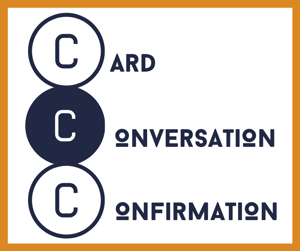If your organization has been through an Agile transformation, or if you have worked with a professional Agile coach or team, you may have realized how much Agile principles have to offer. In fact, you may have considered becoming an Agile coach yourself. This role often appeals to people who are already familiar with Agile systems and who also love collaborating and making workplaces even better. Understanding what an Agile coach does and what to expect can help you decide if this is a career path you wish to pursue.
What Is an Agile Coach?
Perhaps the best way to define what an Agile coach does is to ask "What is Agile coaching?" instead. One of the biggest aspects of Agile coaching is how a coach helps clients and teams. Mark Hill, an Agile Delivery Lead and coach with Eliassen Group, explains that an Agile coach has one goal when working with clients: "to uncover and solve business problems which increase the ability to sense and respond; now and for the future." Megan McNeill, Eliassen Group’s National Recruiting Manager, who specializes in matching Agile consultants to organizations, adds, “An Agile coach to me is a servant leader. They help individuals, teams, leaders, and organizations adopt an Agile mindset.”
What Are Agile Coaching Skills?
Your first thought might be that you should learn about Agile frameworks, such as the Scaled Agile Framework (SAFe) or Scrum@Scale, and Hill recommends that you know several frameworks, but the best Agile coaches embrace "Agility" rather than "Agile practices." Hill says," An Agile coach understands that a company, organization, or individual already has some degree of Agility, without ever practicing an ‘Agile framework.’ They know you cannot adopt Agile, but you can grow Agility by learning to sense and respond better to your internal and business ecosystem."
Helping people sense and respond better to what is going on around them often involves asking people to make changes in their habits, including how they work. This means you must be a strong communicator. Once you unify team members behind a shared vision, then they can work toward it. Raza Rabbani, Practice Recruiting Lead, Agile, at Eliassen Group says that clients look for someone who is "personable, a team player, able to work with others." Given that you may be advising about workflows or processes, your ability to build trust is crucial.
What Does a Typical Day Look Like?
The typical day will depend on the organization. Sometimes, Agile coaches join when an organization has decided to engage in a full Agile transformation, but in other cases they may help stand up new teams within an organization that is already Agile. Depending on your experience, you would work with members of the team, while senior Agile coaches would work with executives. Or, you could work with both. Hill describes one example: "I’ve been asked to see if Agile teams are ‘doing it right,’ and walked out coaching executives and redesigning critical aspects of a business; in short, doing business agility transformation."
Whatever the “typical” engagement looks like, Hill says, "An Agile coach senses and responds to a series of networked challenges, surfaces the root causes, helps the client design a better future, and helps them iteratively realize it." The key is that once the client is able to start realizing a better future on their own, then the Agile coach's services may no longer be necessary, and will change over time.
How Long Would I Work in One Place?
In terms of commitment to an organization, many Agile coaches work as contractors, especially since their ultimate goal is to teach teams how to operate independently. Hill notes, however, that more and more Agile coaches are becoming internal employees. Even if an Agile coach is in a long-term role, they find their sense of purpose in helping other teams reach the next level. Once that is done, the Agile coach can keep their skills fresh by moving on to a different organization – or internal teams – with different challenges.
How Do I Get on the Agile Coach Career Path?
There aren’t really Agile coach requirements or a clear Agile coach training process in the technical sense. What makes the Agile coach career path so exciting is the variety of backgrounds that are welcome. Hill began his career as an academic who "always had a fascination with business and how it powered the economic growth and potential of people and communities," and he became a professional Agile coach after helping an employer solve problems with the help of the Agile manifesto.
Many Agile coaches come from the Information Technology world, but others started out as business analysts or project managers. McNeill says, "A lot of people were working in a company that was looking to do an Agile transformation, and then they just fell into it." They see how Agile helps projects get done faster and make their work more rewarding – and they want to share those outcomes with others.
According to Rabbani, one common Agile career trajectory is for Scrum Masters to become Agile coaches. Scrum Masters ensure that chosen Scrum frameworks are followed, and they remove obstacles for Agile teams, so they are already gaining deep Agile experience. He advises any Scrum Masters who aspire to be Agile coaches to keep reaching for higher-level Scrum Master roles and let your company know that you are interested in pursuing that career.
If you can combine multiple skillsets with an understanding of Agility, you can find yourself on the right track. Hill says, "Great Agile coaches are master strategists and technicians that come in with a detailed understanding of Agility systems, plus one or more business functions, such as sales, marketing, technology, operations, etc."
How Can Eliassen Group Help Me?
Eliassen Group’s recruiters are constantly looking for coaches who not only have the experience but whose goals align with those of an organization. This can involve a long-term commitment that benefits both the Agile coach and the organization where they will work. McNeill says, “Sometimes I will work with individual coaches for months, or years, even before the right opportunity for them opens up at the right time.” As soon as the right Agile coaching opportunity arises, you will find this field to be an exciting option where, as Hill says, "creativity is going to, and has been, paying off."



